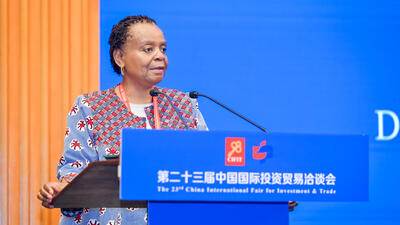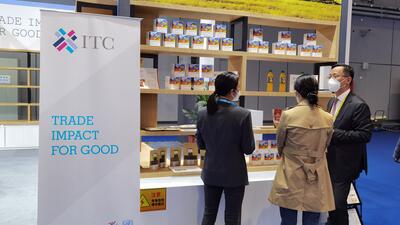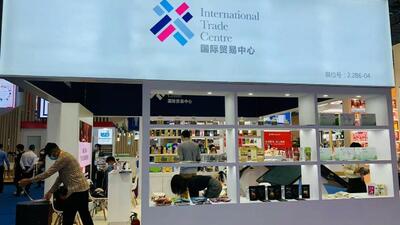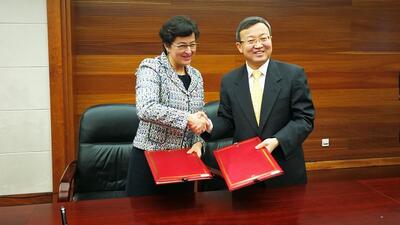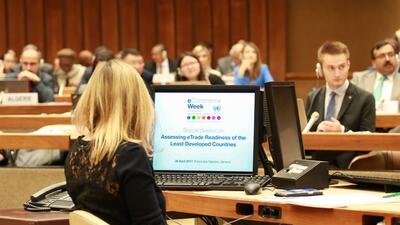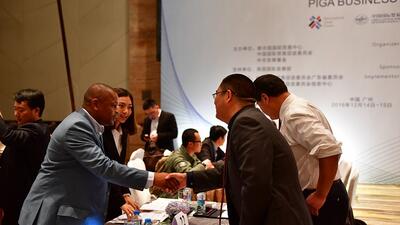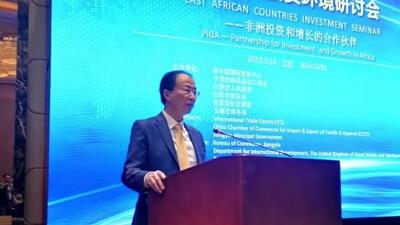Addressing gender bias in corporate spending
“As women business owners, we need two things,” said Erka Tsevegrash, President and CEO of the Gandirs Group construction firm in Mongolia. “First, we need to meet buyers. But that’s not enough because, second, we need to understand their purchasing requirements and how to meet those requirements.”
Tsevegrash’s needs are universal to womenbusiness owners around the world, and were precisely the issues that the Global Platform for Action on Sourcing from Women Vendors addressed at its Women Vendors Exhibition and Forum (WVEF) in September 2011. While large corporations do procure goods and services locally, they have historically not made an active effort to buy from women-owned businesses, leaving these vendors without information on how to access and successfully bid on tenders.
To fill this gap, ITC and its partners — including representatives from selected Fortune 500 companies, governments and institutions — formed the Global Platform in 2010 to increase the share of corporate, government and institutional procurement from women vendors, bringing greater economic benefit to women and their communities.
According to the World Food Programme, women reinvest 90% of their earnings in family well-being. When women are in control of their income, a number of positive results follow: infant mortality decreases, child health and nutrition increases, economies expand and cycles of poverty are broken. Today the platform’s reach is truly global, with a network of more than 50,000 members.
Making connections
The Global Platform works on multiple levels, bringing women business owners together with corporations, institutions and governments seeking to increase their purchases from women vendors, and working with TSIs to build the skills and knowledge of women business owners.
WVEF was the programme’s first major event. Held in Chongqing, China, the conference drew more than 300 women business owners, corporate executives and procurement managers, government leaders and TSIs. It is at WVEF that Tsevegrash and more than 150 other women business owners sought to open new doors. By the end of the conference, US$ 14.8 million in business transactions were reported.
Advantages of a diverse vendor list
Platform members recognize that seeking outwomen-owned businesses to consider as vendors taps into a latent supply chain. Barry Friedman,Walmart’s Senior Vice President of Corporate Affairs, said during the event, “There are distinct advantagesto diversity in our supply chain: it strengthens it and it adds creativity and competition.” Ward sees another advantage, too. “Women-owned businesses are generally smaller, and that means they can better adapt to market demands.”
In many cases, going global is about starting local. Getting into the supply chain of a national subsidiary can be the first step in getting into the company’s global supply chain.
Philip DeVliegher, Director of Global Supplier Diversity for Marriott International, knows that scenario well. “The challenge for multinational companies lies in the local companies truly being inclusive and in identifying suppliers we do business with. What we are doing now is identifying who those potential suppliers could be, and bringing them to the table. They’re not necessarily out front.”
But making connections is not the final step. It is critical that women business owners have the skills to meet the demands of the buyers, which is where TSIs come in. ITC assists TSIs with training women business owners in areas such as costing and pricing, innovation in product development, and meeting standards for health, sanitary and packagingrequirements. In 2011, the platform worked with TSIs including PromPeru, the American Chamber of Commerce in Peru, the Fondo Nacional de Apoyo para Empresas de Solidaridad, the Women’s International Textile Alliance, IWCA, and BPW.
The second WVEF will be held in 2012, supportedby a growing network. “Each year, platform members spend more than US$ 700 billion purchasing goods and services,” said Meg Jones, Manager of the Women and Trade Programme at ITC. “Leveraging this group can have a tremendous impact on the global supply chain.”




